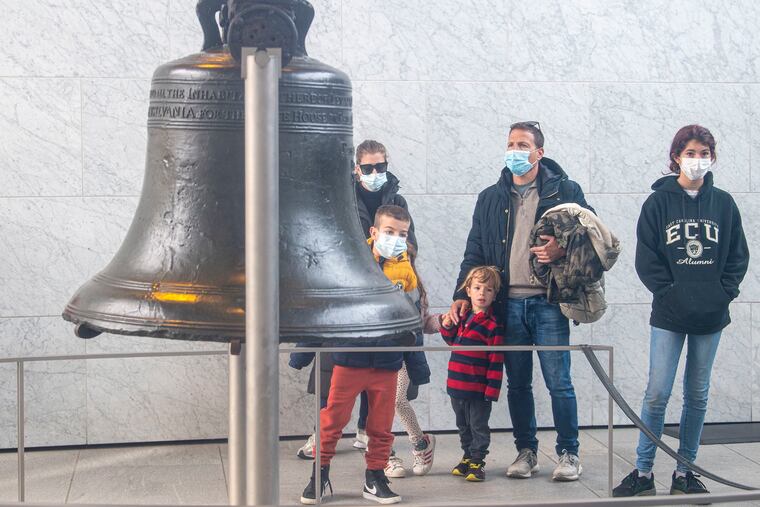Philadelphia messed up the mask mandate | Editorial
Whether masks are mandated or not, poor communication from city leaders undermines public health.

Last Monday, Philadelphia made national news by reinstating the city’s indoor mask mandate even as COVID-19 mitigation efforts were being rescinded elsewhere. Health Commissioner Cheryl Bettigole told the New York Times, “The thing is, I could be wrong — people two weeks from now could be laughing at me, but if I manage to save lives because I’m right, that’s worth the risk.”
Bettigole’s determination was echoed across city government. Council members cited concerns about the impending mandate from the city’s business community during a hearing earlier this month on the Health Department’s 2023 budget. But lawmakers did not ask for the use of mandates to be scuttled.
In an interview with the Washington Post last week titled “Leadership During Crisis,” Mayor Jim Kenney also defended the decision, saying “the mask issue, which I do not understand and in my lifetime I have never seen anything like it, has become such a politicized issue. It’s the most simplest thing you can do to keep yourself safe and to keep people safe.”
» READ MORE: So far, BA.2 proving to be more mild on hospitalizations than Omicron, despite uptick in cases.
Hours after Kenney’s defense of the plan, the city backtracked, and those on both sides of the mandate debate have been left wondering why.
Health policy experts have also expressed dismay that the city’s decision to revoke the mandate three days after reinstituting it risks undermining confidence in the department. Bettigole pushed back against any characterization that last week’s back-and-forth might contribute to a sense of pandemic fatigue.
Whether or not reinstating the mandate was a good idea, what’s even worse is establishing a set of metrics, making decisions based on those metrics, and then tossing them aside after only a few days. The quick flip-flop raised questions about the direction of the department, which — after a series of missteps in recent years — wasn’t operating with an abundance of the benefit of the doubt to begin with.
The Health Department has in the recent past miscalculated the city’s vaccination rate, failed to produce consistent figures around positive test results, and mistreated the remains of Black Philadelphians victimized by the MOVE bombings.
» READ MORE: With recreational marijuana now legal in NJ, PA should follow.
Against that backdrop came the city’s decision to reimpose a mandate — a questionable move that made Philadelphia an outlier among other major American municipalities.
Now, if a new COVID variant emerges that is better able to evade immunity from vaccination or previous infection, will the Health Department be able to garner the public buy-in necessary to enforce new regulations?
If that’s even a question, it’s problematic because a credible and strong Health Department is essential. Beyond the pandemic that has taken the lives of more than 5,000 Philadelphians, the city is also seeing increases in deaths from guns, traffic crashes, and opioids — each a public health crisis in its own right. After last week’s debacle, there may be one more dilemma for the Health Department to urgently address — a crisis of trust.